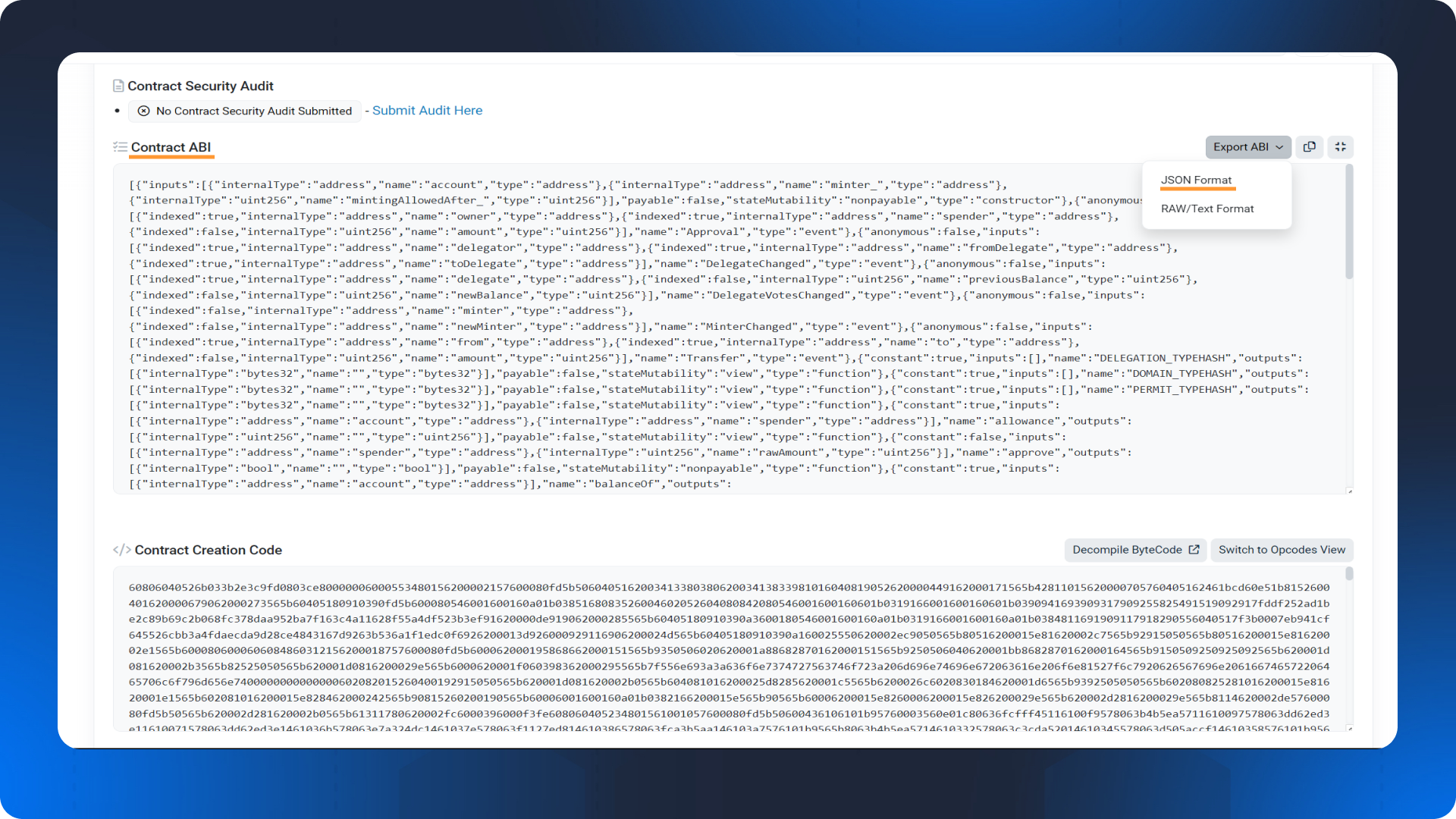
Overview
An Application Binary Interface (ABI) decoder is a tool that converts the data of log events or the function calls of internal transactions from the blockchain into human-readable information. It utilizes the ABI definition of a smart contract to map the raw hexadecimal data in log events and function calls to the ABI's specified data types and values.
As an example, instead of a hexadecimal-character string representing the event signature
0xddf252ad1be2c89b69c2b068fc378daa952ba7f163c4a11628f55a4df523b3ef, the ABI decoder translates the string into its
corresponding event name Transfer. Additionally, you can view the indexed parameters of this event. Since it is a
transfer event for ERC-20 tokens, topic_1 stands for from_address, and topic_2 stands for to_address. The
transfer event below has more than two parameters, but it is common to refer primarily to indexed parameters.
Transfer (index_topic_1 address from, index_topic_2 address to, uint256 value)Use Cases
An ABI decoder can assist developers and users in understanding the details of a blockchain transaction or log event as it provides a more user-friendly representation of data. It can also help debug issues with smart contracts as it becomes easier to identify any unexpected values or errors in the data.
For instance, imagine a smart contract with an event triggered whenever a user transfers funds. The raw data of this event is normally a hexadecimal-character string, difficult for a human to interpret. An ABI decoder, using the contract's ABI definition, can decode this data and display the actual values of the event's parameters, such as the address of sender or recipient, or the number of funds transferred.
ABI Decoder APIs
ABI Decoder via Harbour
Setting up an ABI decoder can be accomplished in a few steps:
- Open your Harbour account (opens in a new tab).

- Navigate to the ABI decoder (opens in a new tab) section.
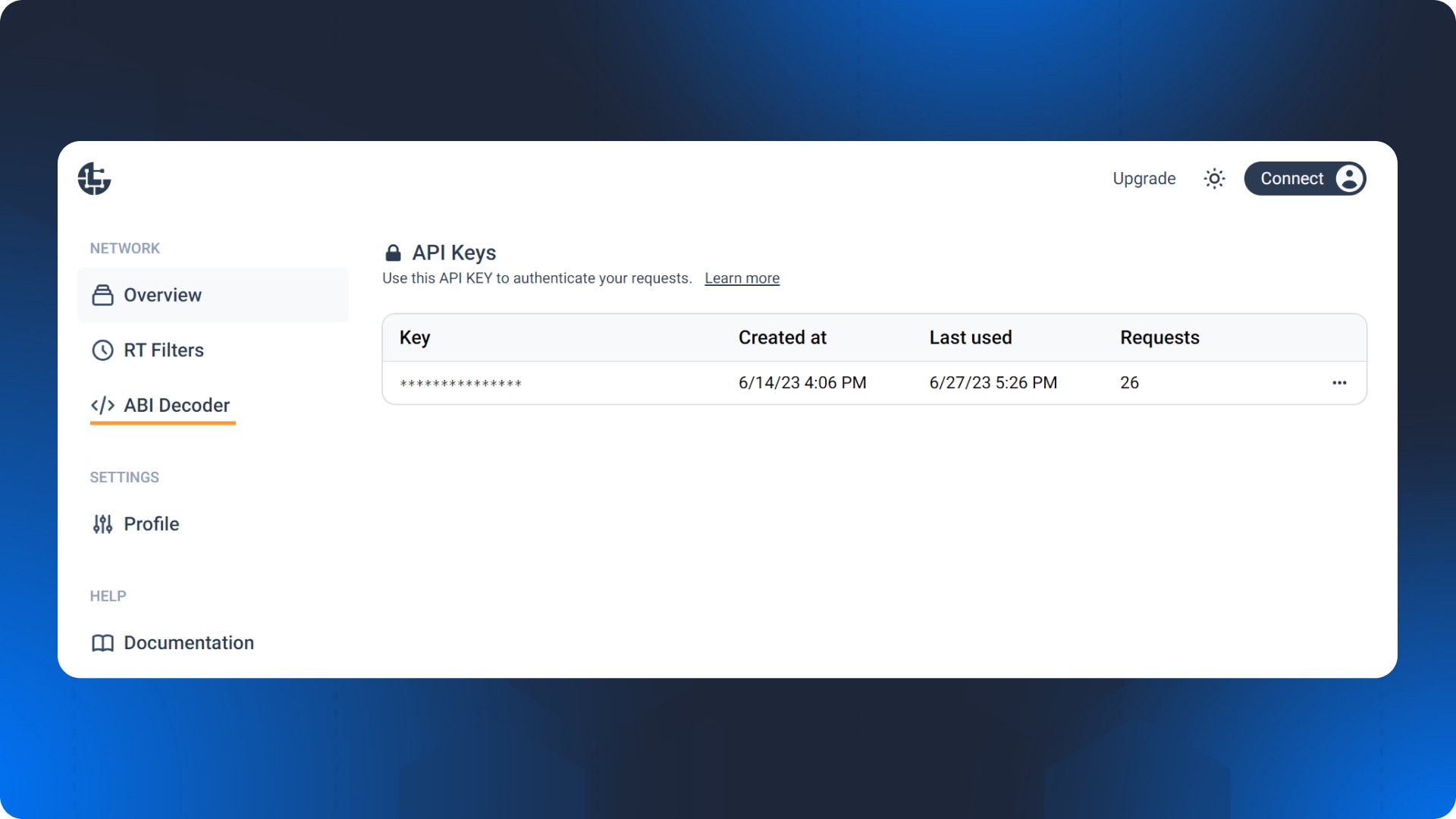
- Click on the
+ Upload new ABIbutton.
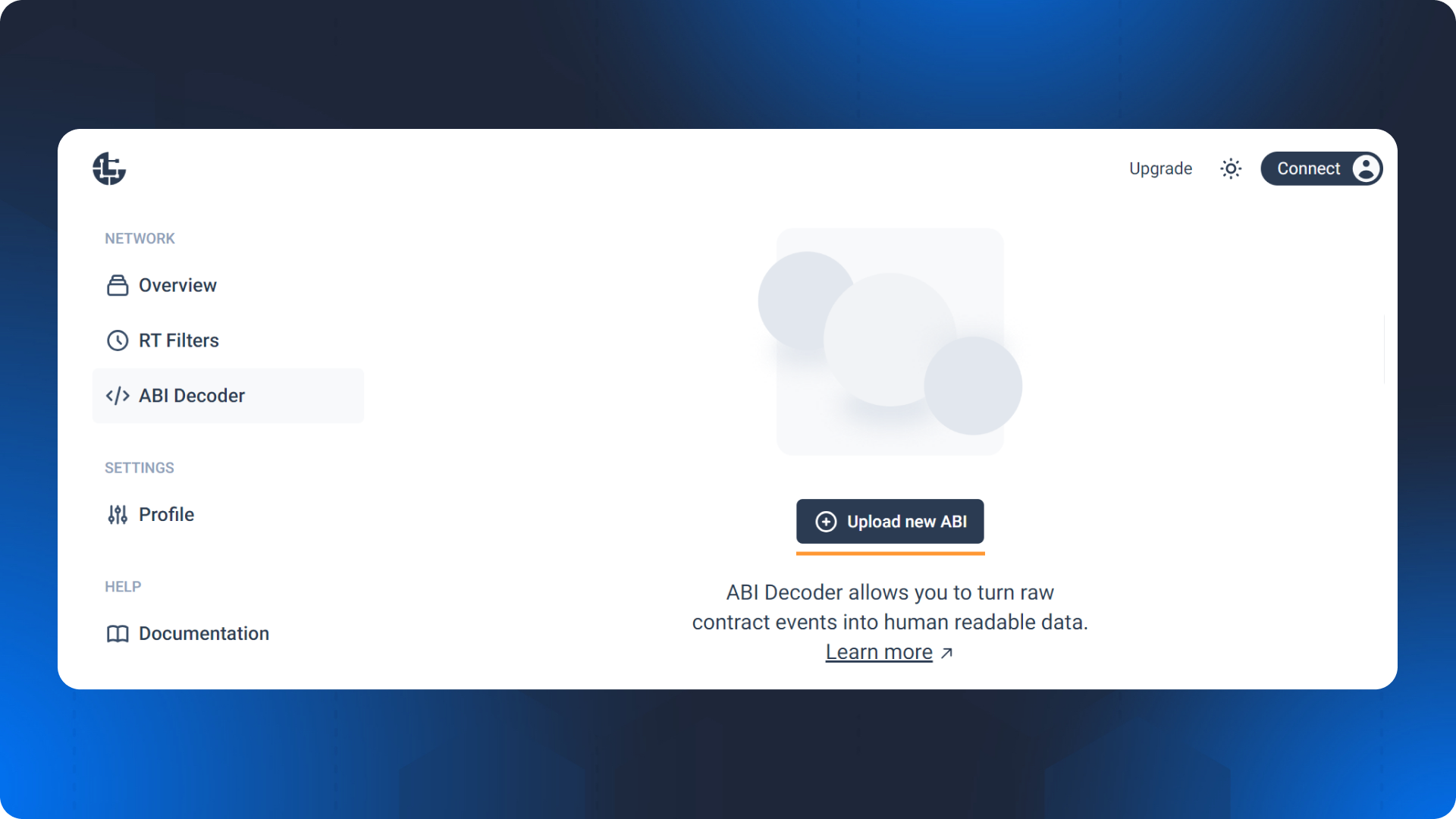
- Upload the ABI of the contract to monitor.
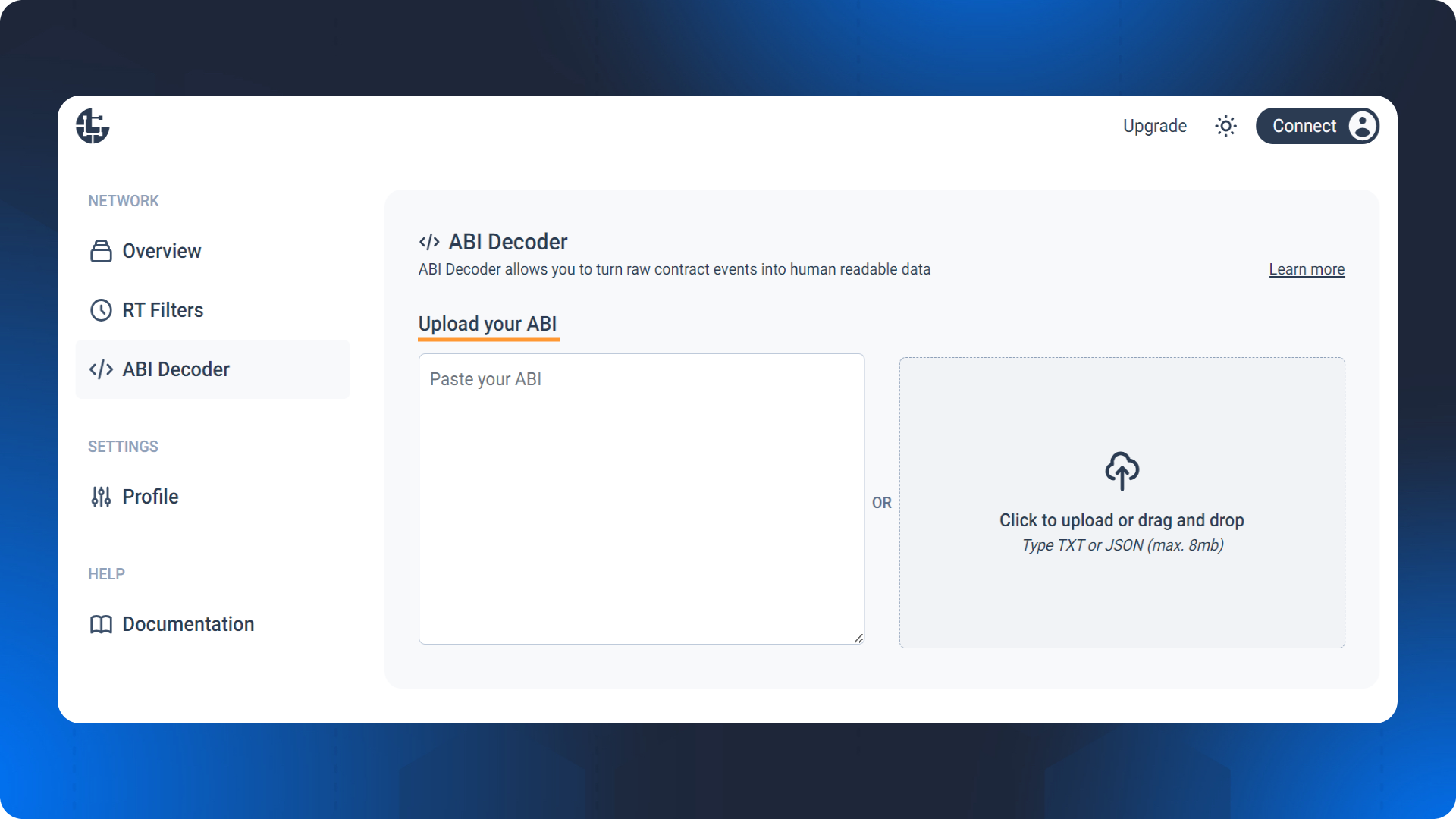
- Select the
Eventsand/orCallsto be decoded and save your ABI decoder.
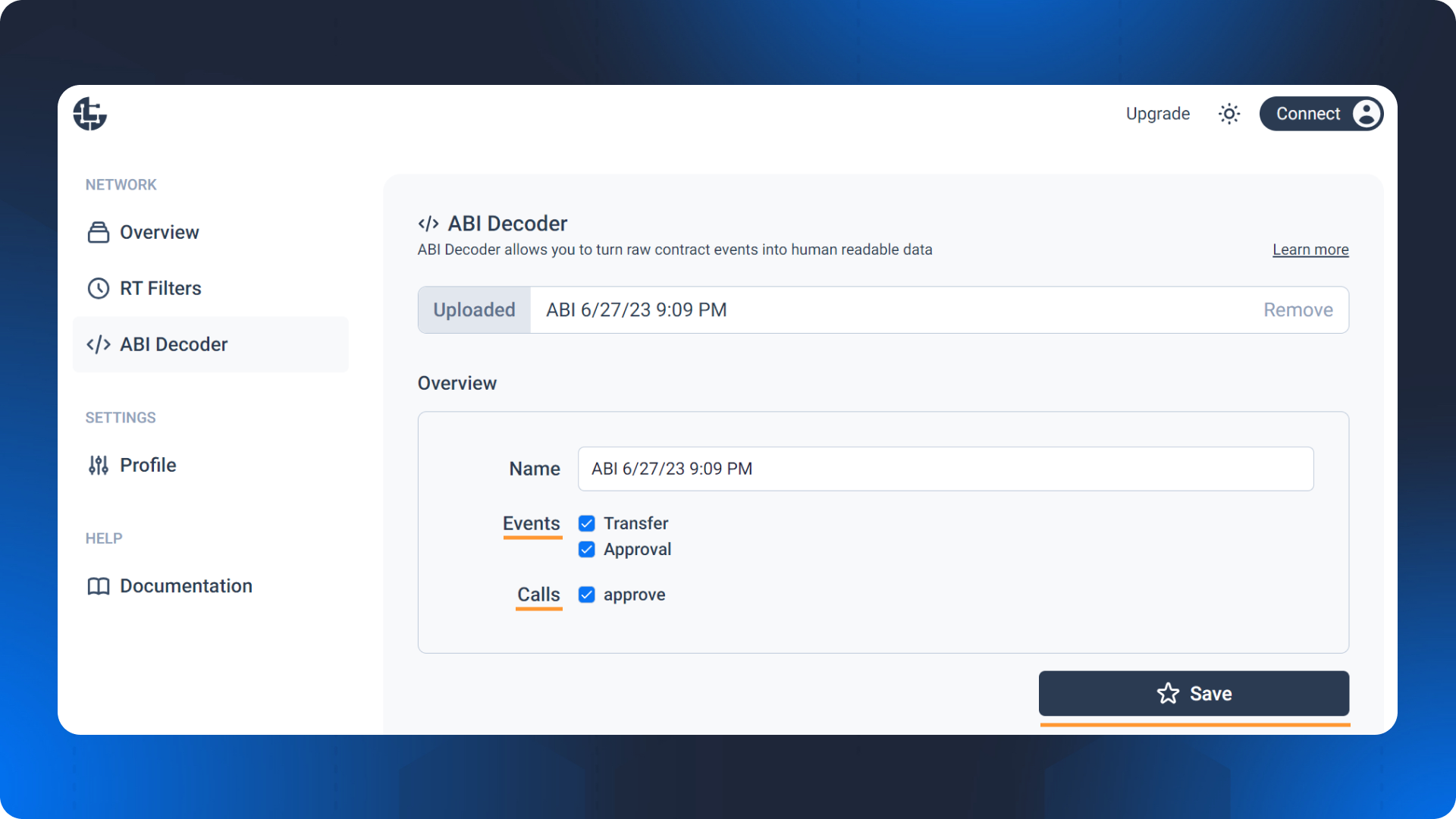
Get Contract's ABI via Etherscan
Should you need to monitor a third-party contract, you can go to Etherscan or another blockchain explorer service. Search for the contract's address you want to keep track of. In this case, the example address corresponds to Uniswap's token contract (opens in a new tab).
The provided instructions may vary depending on the blockchain explorer service you are using.
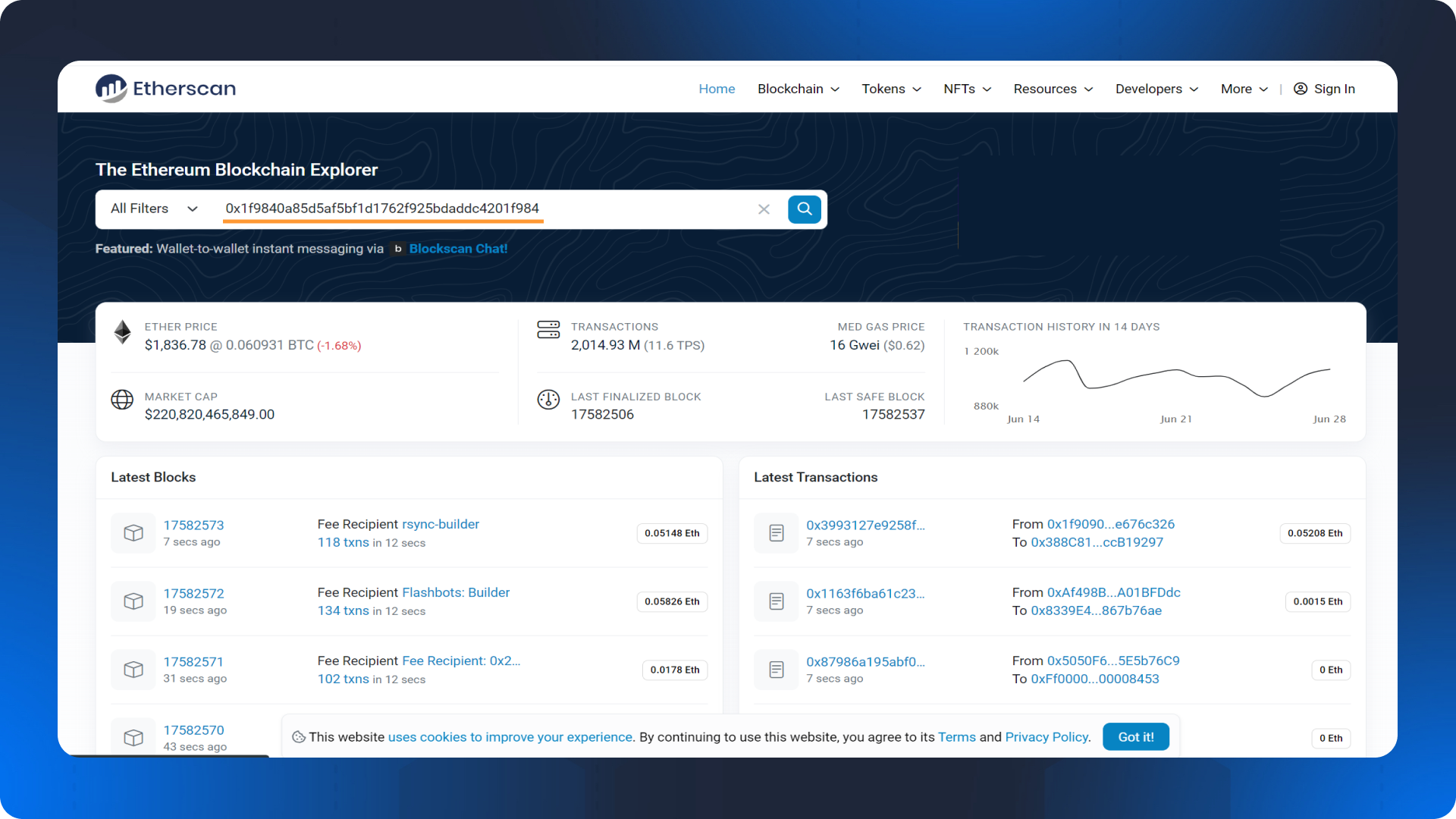
Once on the contract's page, look for the Contract tab or a similar section that provides contract-related
information.
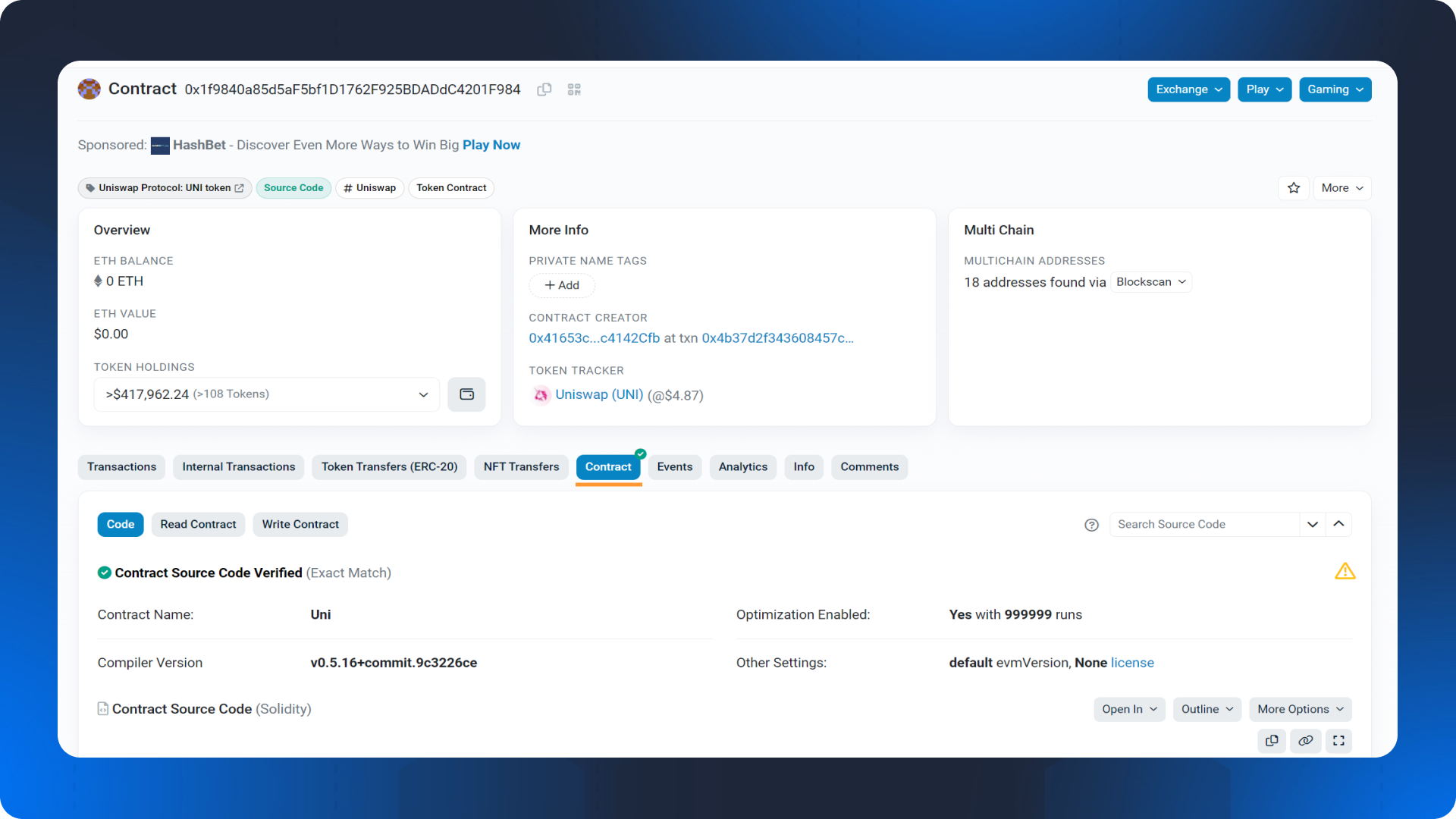
In the Contract tab, find the contract's code. Look for the section that mentions the contract's ABI and copy
it from the provided location. ABI is usually a JSON object that describes contract's functions, events, and
variables.
